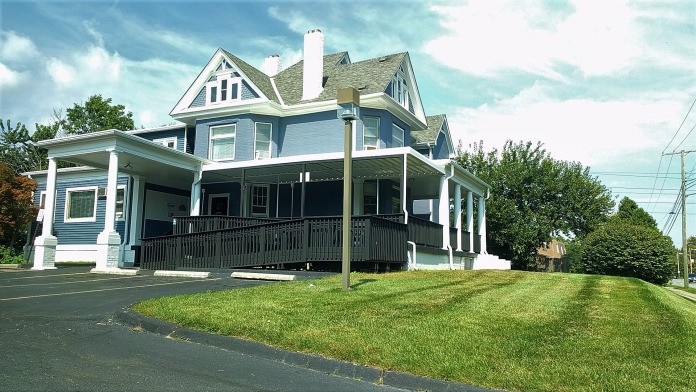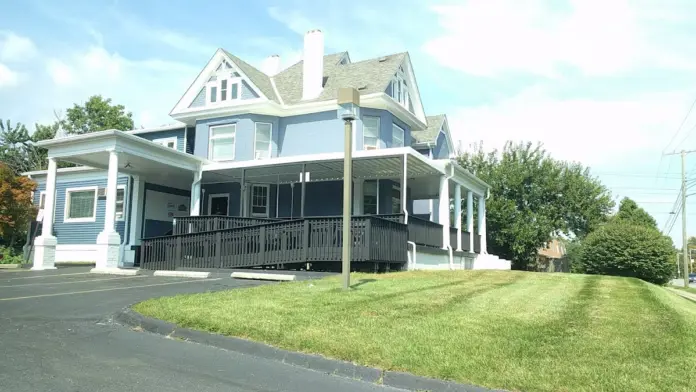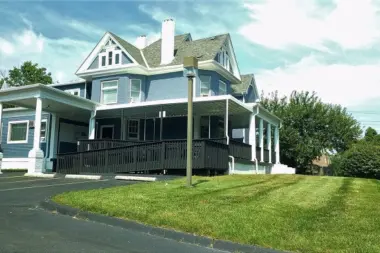About North Community Counseling Centers Bridge
In northern Columbus, Ohio, you can find the North Community Counseling Centers (NCCC) Bridge Location. Bridge is one of NCCC’s four locations in Columbus, out of which they run their substance use disorder (SUD) treatments. At their core, they view addiction as a disease that can be treated rather than a moral failure, a philosophy that imbues their treatments with a measure of grace. It also means they strive to promote the most effective modalities in helping patients recover.
At NCCC Bridge, anyone aged 18 and older can access their outpatient rehabilitation programs for alcohol and substance use disorders. They treat people on Medicare and Medicaid and can also accept people on a cash or self payment basis.
A Multimodal Approach to Recovery
NCCC’s approach to treatment rests on three pillars, the first of which is counseling. The program requires that patients come into the office for weekly individual and group counseling sessions. Here, they offer therapy and guidance to help patients through the recovery process and with other mental health counseling if required. NCCC does require that participants stay abstinent from illicit substances and use random drug testing to keep patients accountable.
The second pillar is the use of medication assisted treatment (MAT), understanding that some people will need a little more help during recovery. Because of this, participants must also keep regular appointments with a prescribing physician.
Addressing Concerns Beyond Substance Use
/
Many patients undergo treatment here as part of their parole or probation conditions. Because of this, NCCC also offers an additional program to educate patients further about the realities of SUD, give them life skills, and even help them work through their legal concerns.
Many patients undergo treatment here as part of their parole or probation conditions. Because of this, NCCC also offers an additional program to educate patients further about the realities of SUD, give them life skills, and even help them work through their legal concerns.
At the start of their admission process, patients undergo an assessment to gauge their needs in relation to recovery from alcohol or substance addiction. At this point, it may become apparent to the assessor that a person’s needs are intensive enough to warrant inpatient care. If this is the case, NCCC can transfer the individual to one of their other locations where inpatient treatment is offered.
Latest Reviews
Rehab Score
Gallery




Other Forms of Payment
Medicaid is a state based program that helps lower-income individuals and families pay for healthcare. Medicaid covers addiction treatment so those enrolled can use their coverage to pay for rehab. When a program accepts Medicaid the client often pays very little or nothing out of their own pocket.
Self-pay involves paying for treatment out of your own pocket. You can use savings or credit, get a personal loan, or receive help from family and friends to fund your treatment. If you don't have insurance or your insurance plan doesn't cover a specific program, self-pay can help ensure you still get the care you need.
Financial aid can take many forms. Centers may have grants or scholarships available to clients who meet eligibility requirements. Programs that receive SAMHSA grants may have financial aid available for those who need treatment as well. Grants and scholarships can help you pai for treatment without having to repay.
Sliding scale payments are based on a client's income and family size. The goal is to make treatment affordable to everyone. By taking these factors into account, addiction recovery care providers help ensure that your treatment does not become a financial burden to you or your family, eliminating one barrier to care.
Private insurance refers to any kind of healthcare coverage that isn't from the state or federal government. This includes individual and family plans offered by an employer or purchased from the Insurance Marketplace. Every plan will have different requirements and out of pocket costs so be sure to get the full details before you start treatment.
Addiction Treatments
Levels of Care
Outpatient Programs (OP) are for those seeking mental rehab or drug rehab, but who also stay at home every night. The main difference between outpatient treatment (OP) and intensive outpatient treatment (IOP) lies in the amount of hours the patient spends at the facility. Most of the time an outpatient program is designed for someone who has completed an inpatient stay and is looking to continue their growth in recovery. Outpatient is not meant to be the starting point, it is commonly referred to as aftercare.
Medical detox involves clearing your body of drugs and/or alcohol under the 24/7 care of licensed medical professionals. If you've become dependent on alcohol or drugs (like benzodiazepines or opioids), quitting abruptly can have uncomfortable and even dangerous side effects. The purpose of medically assisted detox is to keep you as safe and comfortable as possible during this process. Medications like Suboxone or Vivitrol may be provided if necessary to mitigate any withdrawal symptoms.
Treatments
The goal of treatment for alcoholism is abstinence. Those with poor social support, poor motivation, or psychiatric disorders tend to relapse within a few years of treatment. For these people, success is measured by longer periods of abstinence, reduced use of alcohol, better health, and improved social functioning. Recovery and Maintenance are usually based on 12 step programs and AA meetings.
Drug rehab in Ohio provides comprehensive treatment to address the physical and psychological needs of those struggling with substance use disorders. This may involve inpatient and/or outpatient care.
A combined mental health and substance abuse rehab has the staff and resources available to handle individuals with both mental health and substance abuse issues. It can be challenging to determine where a specific symptom stems from (a mental health issue or an issue related to substance abuse), so mental health and substance abuse professionals are helpful in detangling symptoms and keeping treatment on track.
Opioid rehabs specialize in supporting those recovering from opioid addiction. They treat those suffering from addiction to illegal opioids like heroin, as well as prescription drugs like oxycodone. These centers typically combine both physical as well as mental and emotional support to help stop addiction. Physical support often includes medical detox and subsequent medical support (including medication), and mental support includes in-depth therapy to address the underlying causes of addiction.
Programs
Adult rehab programs include therapies tailored to each client's specific needs, goals, and recovery progress. They are tailored to the specific challenges adult clients may face, including family and work pressures and commitments. From inpatient and residential treatment to various levels of outpatient services, there are many options available. Some facilities also help adults work through co-occurring conditions, like anxiety, that can accompany addiction.
Young adulthood can be an exciting, yet difficult, time of transition. Individuals in their late teens to mid-20s face unique stressors related to school, jobs, families, and social circles, which can lead to a rise in substance use. Rehab centers with dedicated young adult programs will include activities and amenities that cater to this age group, with an emphasis on specialized counseling, peer socialization, and ongoing aftercare.
Clinical Services
Group therapy is any therapeutic work that happens in a group (not one-on-one). There are a number of different group therapy modalities, including support groups, experiential therapy, psycho-education, and more. Group therapy involves treatment as well as processing interaction between group members.
In individual therapy, a patient meets one-on-one with a trained psychologist or counselor. Therapy is a pivotal part of effective substance abuse treatment, as it often covers root causes of addiction, including challenges faced by the patient in their social, family, and work/school life.
Staff & Accreditations
Staff
Katrina Kerns
President & CEO
Lisa Bishop
COO
Rebecca Benedetto
CFO
Angela Johnson, MD
Medical Director
Erica Robinson
Director of Compliance & Quality Improvement
Rebekah McCarty
Clinical Program Director
Stacey Adams
Director of Community Based Programs
Christina Edmerson
Director of Residential Services
Accreditations

The Commission on Accreditation of Rehabilitation Facilities (CARF) is a non-profit organization that specifically accredits rehab organizations. Founded in 1966, CARF's, mission is to help service providers like rehab facilities maintain high standards of care.
CARF Accreditation: Yes
Contact Information
4897 Karl Rd
Columbus, OH 43229